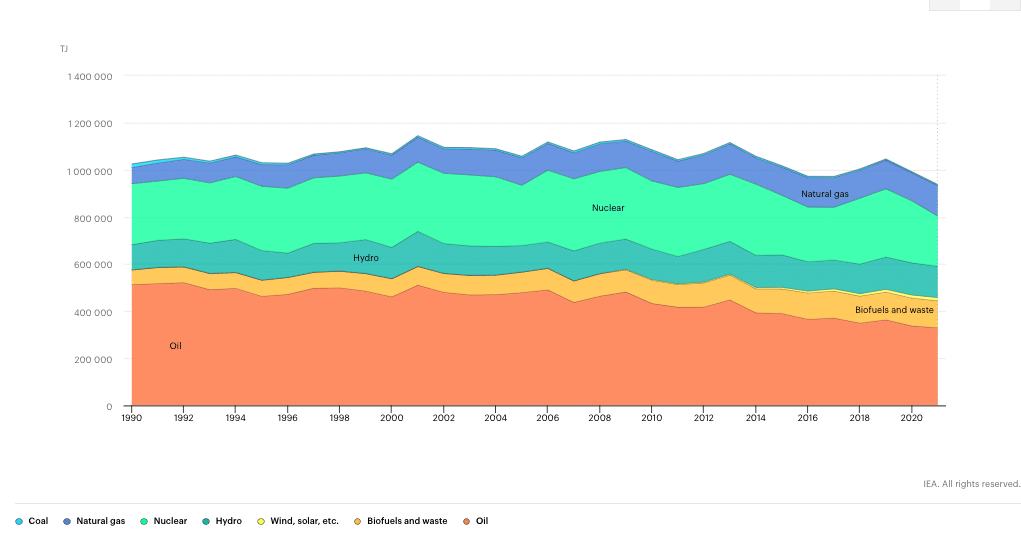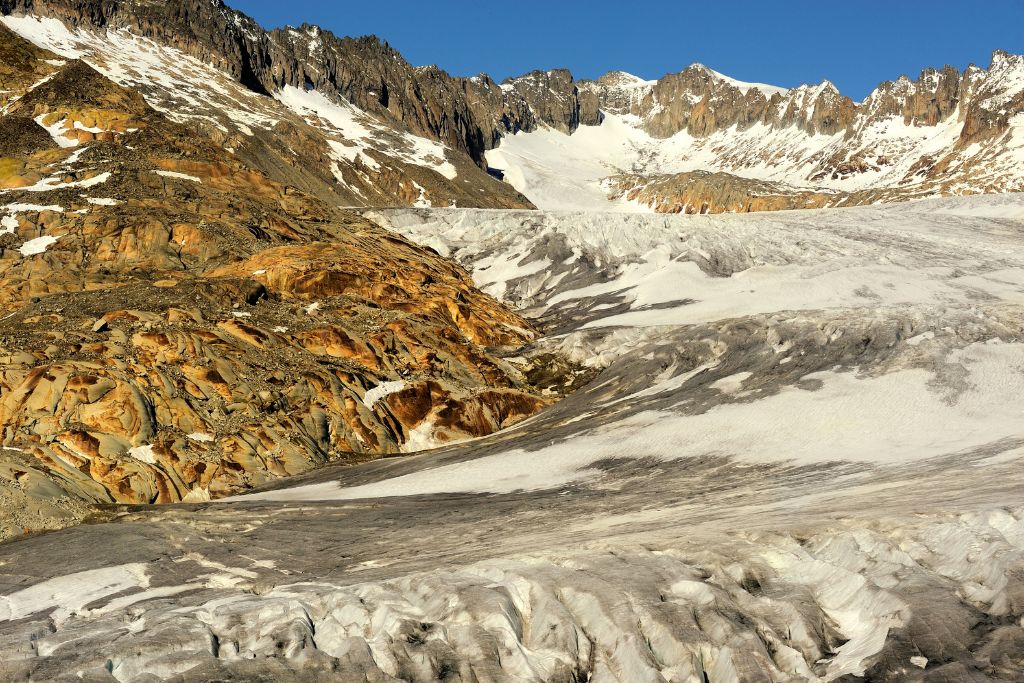The new law, approved in Sunday’s Swiss referendum, requires the country to decrease its dependence on imported oil and gas while increasing the usage of more environmentally-friendly alternatives to reach carbon neutrality by 2050.
—
Almost 60% of Swiss voters have backed plans to reach net zero by 2050 in last week’s referendum, despite opposition from the country’s right-wing party.
Supporters argued that the law was required to ensure energy security and independence as well as address climate change. They pointed to the melting of glaciers in the Swiss Alps, which lost one-third of their volume between 2001 and 2022, as evidence of the need for climate action.
An earlier attempt to help Switzerland meet its climate goals in 2021 failed due to concerns over costs. The current law was developed in response to the Glacier Initiative, a proposal developed by climate activists to implement a total ban on all oil and gas consumption. The government disagreed with the ban and instead developed a counter-proposal covering elements from the initiative.
“This victory means that at last the goal of achieving net-zero emissions will be anchored in law. That gives better security for planning ahead and allows our country to take the path towards an exit from fossil fuels,” said Georg Klingler, an expert at Greenpeace Switzerland.
“The result of the vote shows that the citizens of our country are committed to the aim of limiting global warming to 1.5C in order to preserve as much as possible our glaciers, our water reserves, our agriculture and our prosperity,” he added.
The bill pledges financial support of two billion Swiss francs (US$2.31 billion) over the course of a decade to support households replacing gas and oil heating systems with greener alternatives. A total of 1.2 billion francs ($1.34 billion) over six years is also reserved for businesses investing in climate-friendly technology.
Switzerland has among the cleanest energy records in Europe – with hydro and nuclear power meeting the bulk of its energy demand – as well as high levels of political concern and awareness regarding climate change. Despite this, the country is heavily reliant on imports for about 75% of its energy, much of which comes from fossil fuels including gas and oil. In recent years, Swiss energy companies have been focused on building renewable plants in other parts of Europe and several industry insiders believe that the country will become a net importer of European electricity by 2030.

Total energy supply (TES) by source, Switzerland 1990-2021. Image: International Energy Agency (IEA).
Concerns over Switzerland’s dependence on external energy sources emerged with Russia’s invasion of Ukraine, with both the supporting and opposing camps arguing that the country’s energy security is at risk.
Approximately 42% of Swiss voters opposed the law, despite the green parties’ unprecedented surge in popularity in the last federal election. Switzerland’s two green parties – The Green Party and the Green Liberal Party – secured just over one-fifth of the popular vote in the 2019 election, thought they struggled to bring about significant climate reforms until last week’s referendum.
The sole political party to campaign against the climate bill was the Swiss People’s Party (SVP), a right-wing and populist party. The SVP claimed that achieving climate neutrality in just over 25 years would effectively mean a total fossil fuel ban, which would increase electricity bills and undermine energy access.
The SVP took the environmental debate as one of its central issues, attacking policies as “un-Swiss” and “anti-freedom”, whilst citing the European energy crisis as a reason why decarbonisation was impractical and damaging to ordinary people. The Party has gained support in rural communities as farmers largely depend on fossil fuels.
Pierre-André Page, an SVP politician, called the law “dangerous”, claiming that it would cause more costs and restrictions.
“We have already taken the necessary (climate) steps. We don’t need to add extra punitive measures to go further when we lack electricity,” he said.
You might also like: Two-Thirds of World’s Glaciers Set to Disappear by 2100 Under Current Global Warming Scenario: Study


















